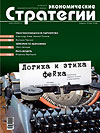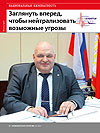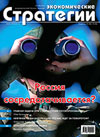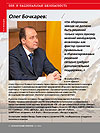Life Cycle of the Military-Industrial Complex Organizations: the Shift from Fiscal to Motivational Economy
DOI: 10.33917/es-7.165.2019.6-25
The article deals with the issues of improving state regulation of the military-industrial complex (MIC) economy concerning an expanding fiscal economy. Case studies demonstrate the impact of existing approaches to state regulation of financial and economic activities on the efficiency of the enterprise life cycle. Attention is drawn to evaluation and effect analysis of such demotivating factors of current approach as “lagging planning”, “deliberate” penalties, an increase in the tax burden, a statutory fixed deficit of working capital, an increase in the loan debt burden. These factors lead to the profit reduction in the real economy and diminish the strength of MIC organizations to make an economic breakthrough. It is concluded that the fiscal economy is the result of inconsistency of rules and norms. In addition, there is the lack of science-based technical and economic models for MIC management considering the interests of all the stakeholders. In order to solve this issue, it is proposed to develop a consolidated state document as general binding rules for the numerous authorities involved in state regulation of MIC financial and economic activities. This set of rules and regulations should also ensure a consistent approach to definitions and algorithms. It is also recommended to organize a permanent platform for productive dialogue between authorities and MIC representatives on the issue of the MIC economic policy







